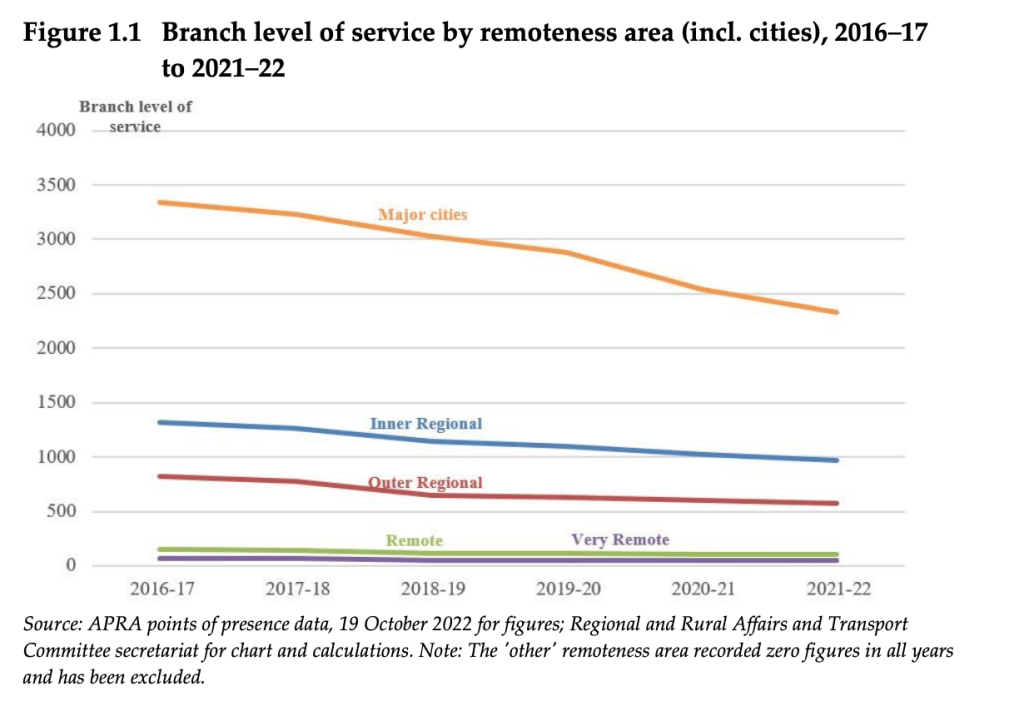‘Simply walking away’: Banks face branch closure crackdown as Senate probe exposes failures


Major banks have been slammed for closing hundreds of regional branches.
The federal government is being urged to pursue a crackdown on big banks closing branches in regional areas after a Senate probe called for cash to be considered an essential service.
A highly anticipated report into the hundreds of branches major banks have closed across the nation was dropped quietly by the Senate committee on regional affairs last Friday.
It recommended a series of reforms to protect communities from branch closures, amid expert fears that many Australians are being “left behind” by the rise of digital banking.
Namely, the committee said access to cash should be considered an essential service, that the government should consider a new publicly owned bank, and that new roadblocks be created to prevent the big four from closing regional branches without approval.
‘Strong stance’
RMIT Associate Professor Angel Zhong, who had followed the inquiry closely, said the committee had taken a “strong stance” to protect access to physical cash and banking.
Zhong said calls for a mandatory code that would require banks to consult with local communities and government before closing a branch should be adopted by government.
“It strikes a better balance between protecting the interest of both taxpayers and regional Australians,” Zhong said.
‘Ongoing need for cash’
The Senate probe was set up over concerns that swathes of physical bank closures in recent years were leaving regional communities in particular without convenient access to cash.
More than 800 branches have been closed in regional areas over the five years to June 2023, according to figures from regulator APRA.
Meanwhile, research has shown that a sizeable minority of Australians still rely on physical banking and would be left without adequate services without branches, with banks shuttering locations in a bid to cut costs.
One bank, Macquarie, even moved to stop offering cash to customers entirely this year.
The Senate committee agreed there was an “ongoing need for cash” and that characterising physical currency as an essential service could prevent banks from ditching it entirely.
“Along with an increased need for cash, regional and remote communities are more dependent on face-to-face services,” it said.
“Vulnerable residents and small businesses may be left ‘high and dry’, or forced to drive hundreds of kilometres to the nearest bank to complete essential and basic financial tasks.
“Australia’s banks are failing to take these impacts seriously. In many cases, banks are simply walking away from communities,” the committee also said.

Source: Rural Affairs Senate Committee (click to enlarge).
Council of the Ageing chief executive Patricia Sparrow urged the government to “immediately action” the essential services call and another that called for an expansion of Australia Post’s Bank@Post service to ensure all major banks were participating.
“This is an important step towards recognising that every Australian needs and deserves access to banking services,” Sparrow said.
Public bank
One interesting recommendation in the report was a call for the government to review setting up a publicly owned bank that could service regional communities indefinitely.
It wouldn’t be the first time the government had owned a bank; the Commonwealth Bank was originally taxpayer owned but was privatised in 1991 under Prime Minister Paul Keating.
Zhong said public banks have been successful in other countries at promoting specific goals like financial inclusion and economic development, such as Kiwibank in New Zealand and KfW in Germany.
“[A] publicly owned bank in Australia could be viable if funding from the government can be sustainable,” Zhong said.
“However, research shows that government-owned enterprises tend to be associated with lower operational efficiency.”








